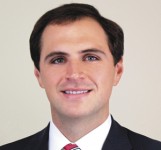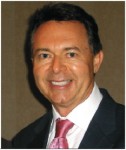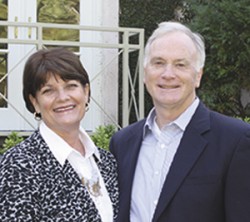When pitted against other states in the union, it’s often said that Mississippi scrapes the bottom of the barrel (or ranks at the top of a not-so-flattering list). Often overlooked, however, are conditions that can contribute overall to a favorable business climate: a strategic geographic location, tax-exempt financing programs and the nation’s lowest cost of living are just a few factors that lure companies to the Magnolia State and encourage home-grown entrepreneurs to set up shop here.
There are more than 43,000 small- to medium-sized private businesses operating in Mississippi. Though recovery for local economies has been slower than that of the national economy, evidence of resurgence for Mississippi companies is on the horizon: the combined annual sales of the Mississippi Business Journal’s Top 100 Private Companies in Mississippi topped $25 billion for the first time ever with the Journal’s 2015 list. To boot, 10 of those companies began in the past 15 years – making their successes all the more impressive.
Dozens more Mississippi companies are poised for growth in the coming years, yet many may be unaware of how to take their company to the next level.
What is Growth Capital?
As a company generates profits, owners may elect to reinvest some of that money back into the company, establishing a growth capital fund. Fund dollars can be socked away, earning interest, until it’s deemed the company has a use for it – an acquisition or expansion, for example. More often than not, however, a company’s needs or opportunities exceed the cash on they have hand. What then?
Options for Capital
Each company and its needs are unique, and there are many sources of capital – from traditional lenders, like banks and other institutions, to venture capital firms to Uncle Moneybags, your great aunt’s second husband. But there are two main categories of financial capital: debt and equity. To best illustrate their uses, advantages and drawbacks, I’ll refer to client scenarios we’ve seen over the years.
Scenario 1: Growth through Acquisition
Consider Company X: a developer and manufacturer of medical devices and technologies headquartered in the Southeast. The company owned intellectual property, including multiple patents, and was funded historically with private, individual investors. Now, Company X had the opportunity to acquire an established, 25-year-old manufacturing and assembly company with solid free cash flow.
Company X was able to use multiple sources and forms of financial capital to make this acquisition. Since the company being acquired had real assets that could be used as collateral and adequate cash flow to repay the debt, Company X was able to utilize commercial bank debt capital. (In addition, individual investors contributed equity capital, resulting in their owning a piece of the combined company – similar to owning shares of a stock in a publicly traded company. But more on equity capital in our second scenario.)
Debt capital is attractive in many instances, including its all-around fit; debt financing is used to fund most any type of business. In addition to banks and other lenders that traditionally come to mind, financing is also available through the Small Business Administration (SBA) and local institutions. Relative to equity capital, debt capital is typically a short-term financing option, and the relationship with the lender is concluded once funds have been repaid.
On the flip side, the downside of debt capital is the monthly obligation that accompanies it. Companies strapped for cash must consider the burden of repaying a chunk of their monthly revenues to the lender. Whereas a company may have flexibility in repaying equity capital, the debt note will come due each month, regardless of the company’s success. Consequently, a dip in revenue can spell trouble for some enterprises.
Scenario 2: Reducing Competition through Acquisition
Consider Company Y: a second-generation, family-owned textiles business. Company Y’s owners had been in business for more than 15 years, financing the company’s growth themselves, largely via bank debt that the family guaranteed. Company owners had the chance to make an acquisition that would dramatically shrink their competitive landscape. Despite sizable annual revenues, the company was already leveraged with bank debt and had limited options to secure additional debt capital from a traditional lender. Therefore, the only real form of financial capital the business could use to make the acquisition was equity capital – that is, cash in exchange for an ownership stake in the company.
When considering equity capital, it’s important to understand that accepting money from others – now investors in your company – changes the game in a number of ways. Issuing ownership in exchange for capital means you’ll have to determine the value of your company – oftentimes more an art than a science, and a subjective one at that. Particularly in the case of a family-owned business, owners may be reluctant to share ownership with anyone new – especially someone outside the family. It’s safe to say that infusing equity capital into a company ushers in a fair amount of new “red tape.”
One upside of equity capital is that it doesn’t have to be paid back on a monthly basis, thereby diverting funds from the company. On average, investors look for a return on their dollars in the subsequent three to five years – allowing majority owners breathing room to nurture the company and make it profitable. In addition, if the business goes under, there’s no one to pay back. And, although bringing in another owner may be a downside to some, the introduction of new blood and new experiences and perspectives can ultimately benefit the company.
In the case of Company Y, we helped secure capital in exchange for a stake in the company, allowing our client to make the acquisition, retain a majority stake in Company Y and shrink his competition. A few years later, we helped the owner sell Company Y, whose valuation and position in the marketplace was strengthened because of the prior acquisition.
Scenario 3: Launching New Products
Lastly, consider Company Z: a young, emerging technology company. With a decade-long proven track record in the market, Company Z was about to embark on an aggressive growth plan through the introduction of multiple products. Company Z funded its early growth with equity capital, while establishing solid commercial banking relationships that provided them with several debt capital vehicles for day-to-day operations. Because Company Z had adequate cash flow for debt repayment, when evaluating options to finance the launch of these new products, they elected to use mezzanine capital and subordinated debt.
Mezzanine capital is considered a hybrid between debt and equity. It generally looks like debt capital in that it has an interest rate, a term and associated conditions, but with the added upside of longer maturities and more flexible terms and structure. Generally, it is subordinate to commercial bank debt, which, in terms of repayment, sits in a senior position. A mezzanine lender typically has warrant coverage, allowing the security to convert to equity in the company if the loan is not paid on time or repayment conditions aren’t met. Variations of this type of financing may also allow the borrower to repay some of the money in equity as well.
In this case, Company Z chose mezzanine financing because it was far less expensive than equity capital and had less stringent terms and conditions than that of commercial banking/senior debt.
Again, no one type of financing is suitable in every situation. There are many factors that should be considered when seeking capital, and consultation with a qualified capital intermediary is strongly recommended. With analysts anticipating the second consecutive year of growth in the state’s gross domestic product since the downturn, Mississippi’s private companies could be poised to ride the wave.
Read More











